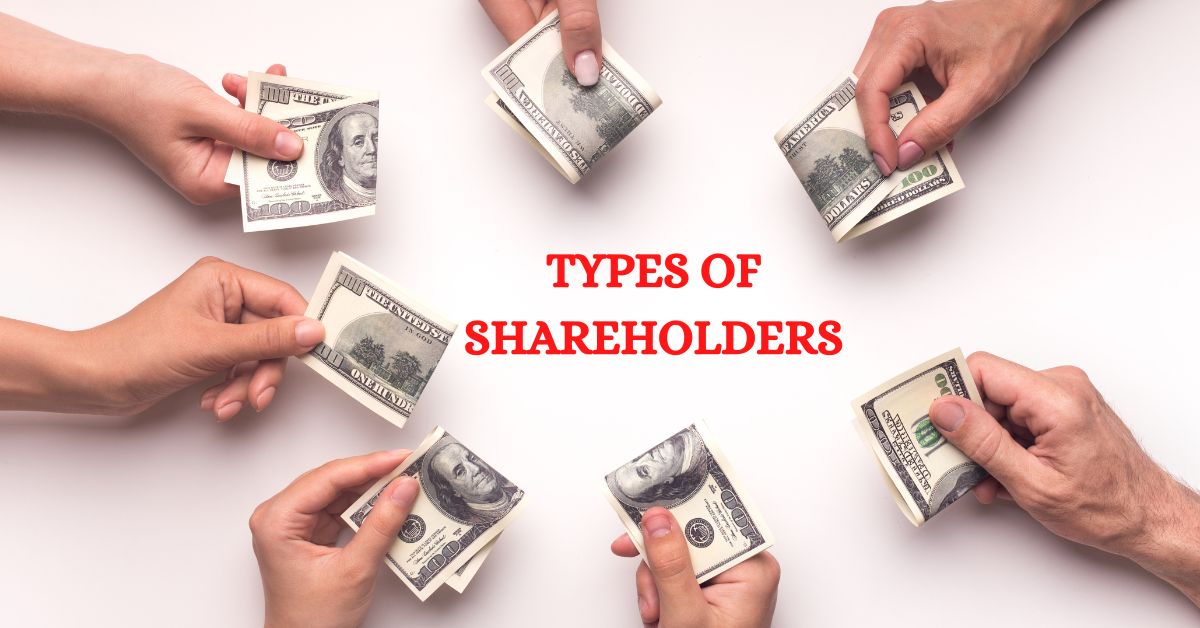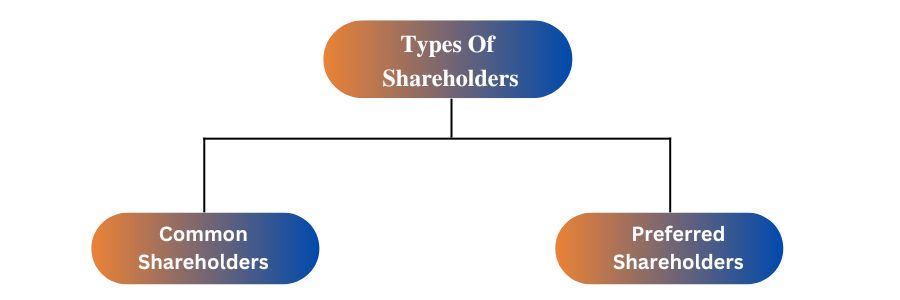19 Oct

Shareholders can be categorized into two types: common shareholders and preferred shareholders. The main difference is their role in the business regarding votes, dividends, and other financial matters. So first, let’s take a look at the types of shareholders.
Table of Contents
Shareholders
An individual, organization, or government that holds at least one share of a company is known as a shareholder or stockholder. You can become a shareholder in a publicly traded company by investing in it. When shareholders hold a share, they can vote for candidates for the board of directors, receive dividends, and have a role in the direction and goals of the business.
Rights of Shareholders
Shareholders have certain rights in the company as they partially own the company.
Right to check records: common shareholders have the right to check a company’s financial reports and other documents, e.g., meeting minutes and shareholder register. However, the shareholders can only check reports if they have a valid reason.
Right to vote: Common shareholders have the right to vote for certain decisions. For example, they can be involved in appointing the candidate for the board of directors, changes in company structure, etc.
Claim assets when liquidated: When a company goes bankrupt for some reason and is forced to sell its assets, common shareholders have the right to claim earnings after settling debts.
Limited liability: Shareholders are solely responsible for the amount of money they invested in the company if it is sued or has debt. Personal property owned by the shareholder is not up for grabs.
Right to take action when wronged: When a shareholder is mistreated, harmed, or wronged, they have the legal right to file a lawsuit filed on their behalf or behalf of the corporation as part of a class action lawsuit against a third party. In addition, the shareholders have the right to sue the executive officer/ director of the company for performing wrongful acts within a company. Examples of unlawful acts may include misrepresentation of financial statements, mismanagement, fraud, or any action against the rules and regulations of the company.
Right to transfer ownership: The shareholder has the right to sell their shares at a stock exchange at any time to anyone.
Types of Shareholders
Based on ownership and control, there are two main types of shareholders;

Common Shareholders
A common shareholder is an individual, organization, or institution that has common shares in a company that gives them ownership in that company. They are entitled to receive common dividends and have the right to vote on corporate matters. The dividend received by common shareholders depends upon the profit-earning capacity of the company, i.e., if a company earns high-profit common shareholders get a high dividend and vice versa. The strong point of these shares is those common shareholders may make handsome dividends the company earns enormous profits, which may be higher than the dividend received by preferred shareholders at a fixed rate.
For example, ABC is selling common shares worth $500 per share. John bought two common shares from a company. So John is now a common shareholder of ABC company. He can check reports and participate in a company’s decision-making.
Preferred Shareholders
A preferred shareholder is an individual, organization, or institution with at least one preferred share or stock in the company. Preferred shares are stock shares with a higher priority than common shares. These shares are given preference over common stock shares in case of liquidation, but after settling down the creditors’ rights. As a result, preferred shares are issued at a lower price than common stock shares.
Preferred shareholders do not have any rights to vote through their stock, but some contracts give them the option to do so if no dividends are paid. Preference shareholders do not have voting privileges within the corporation and cannot influence how the corporation’s administration is run. However, they are entitled to collect dividend income from any profit before other shareholders are paid at a fixed rate agreed upon between the company and preferred shareholders.
Conclusion
Shareholders are persons or institutions who hold specific shares of a company. There are two principal shareholders: common and preferred shareholders. Common shareholders are entitled to vote at shareholders’ meetings. Preferred shares don’t always give you voting power but pay dividends.
Content writer at Invyce.com
Related Post
Copyright © 2024 – Powered by uConnect



Meena Khan